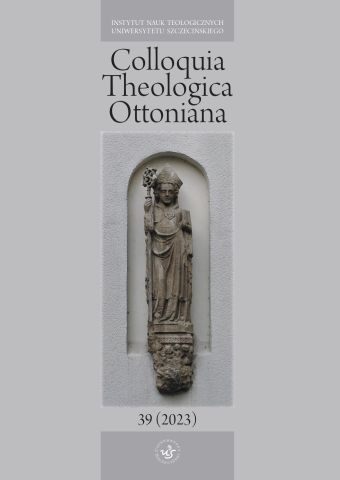Zakaz czynienia idoli (Wj 20, 4; Pwt 5, 8) i jego późniejsze reinterpretacje
A Prohibition against Idols (Exodus 20:4; Deuteronomy 5:8) and its Subsequent Reinterpretations
Author(s): Janusz LemańskiSubject(s): Christian Theology and Religion, Theology and Religion, Comparative Studies of Religion, Biblical studies
Published by: Wydawnictwo Naukowe Uniwersytetu Szczecińskiego
Keywords: Decalogue; idol; idolatry; aniconism; monolatry; monotheism
Summary/Abstract: The article deals with the prohibition against making worship images of “strange gods.” The author points out that the prohibition first appeared as a short version in Deuteronomy (De) 5:8a and thus constituted a full expression of the first commandment (De 5:7,9a). In this version, its meaning was monolatric. Furthermore, another editor extended this short version with the verse 8b. The priestly editing in Exodus (Ex) 20:4 split this pronouncement into two nominal sentences (in De 5:8b: temûnâ as apposition to pesel) and, at the same time, broadened the scope of the prohibition to include potential figurative depictions of YHWH. In both reinterpretation versions, there was an additional shift in emphasis from monolatry to monotheism. Subsequent interpretations from the period after the Babylonian exile prohibited idolatry of an even more explicitly monotheistic character. First, by deprecating idols as useless gods (Holiness Code), next by referring to the experience at Horeb (an auditory rather than a visual way of manifestation of YHWH), further to the theology of creation (the lack of adequate patterns within it), again to the faithfulness to the calling and selection (exodus), as well as to the covenant (idolatry as a cause of the breaking of the latter) (De 4).
Journal: Colloquia Theologica Ottoniana
- Issue Year: 2023
- Issue No: 39
- Page Range: 97-127
- Page Count: 31
- Language: Polish

